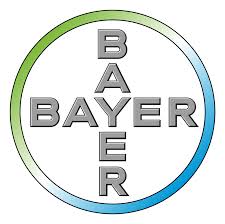Business Administration
Accredited Consulting Service for Dr. Popa MBA MD Dip Mgt Accredited Senior Consultant (ASC)
Executive Summary Video
The Appleton Greene Accredited Consultant Service (ACS) for Business Administration is provided by Dr. Popa and provides clients with four cost-effective and time-effective professional consultant solutions, enabling clients to engage professional support over a sustainable period of time, while being able to manage consultancy costs within a clearly defined monthly budget. All service contracts are for a fixed period of 12 months and are renewable annually by mutual agreement. Services can be upgraded at any time, subject to individual client requirements and consulting service availability. If you would like to place an order for the Appleton Greene Business Administration service, please click on either the Bronze, Silver, Gold, or Platinum service boxes below in order to access the respective application forms. If you have any questions or would like further information about this service, please CLICK HERE. A detailed information guide for this service is provided below and you can access this guide by scrolling down and clicking on the tabs beneath the service order application forms.
Bronze Client Service
Monthly cost: USD $1,500.00
Time limit: 5 hours per month
Contract period: 12 months
SERVICE FEATURES
Bronze service includes:
01. Email support
02. Telephone support
03. Questions & answers
04. Professional advice
05. Communication management
To apply – CLICK HERE

Silver Client Service
Monthly cost: USD $3,000.00
Time limit: 10 hours per month
Contract period: 12 months
SERVICE FEATURES
Bronze service plus
01. Research analysis
02. Management analysis
03. Performance analysis
04. Business process analysis
05. Training analysis
To apply – CLICK HERE
Gold Client Service
Monthly cost: USD $4,500.00
Time limit: 15 hours per month
Contract period: 12 months
SERVICE FEATURES
Bronze/Silver service plus
01. Management interviews
02. Evaluation and assessment
03. Performance improvement
04. Business process improvement
05. Management training
To apply – CLICK HERE
Consultant profile
Dr. Popa is an approved Senior Consultant at Appleton Greene and he has experience in management, globalization and marketing. He has achieved a Master in Business Administration, a Doctor in Medicine and a Professional Diploma in Management. He has industry experience within the following sectors: Biotechnology; Healthcare; Consultancy; Government and Oil & Gas. He has had commercial experience within the following countries: United States of America; Canada and United Kingdom, or more specifically within the following cities: New York NY; Boston MA; Montreal; Toronto and London. His personal achievements include: facilitated performance management improvement process; facilitated quality improvement process; facilitated regulatory compliance improvement; facilitated corporate change and learning and facilitated clinical research operations improvement. His service skills incorporate: project management; quality assurance; regulatory compliance; corporate change and medical affairs.
To request further information about Dr. Popa through Appleton Greene, please CLICK HERE
Executive summary
Business Administration
Our analysis, undertaken during the last 5 years, has illustrated that many companies invest heavily in the acquisition of pre-packaged solutions, without needing or using the entire package. As economists say, there is money left on the table. Dr. Popa has created a solution by providing tailor made services for organizations that want to run their projects on time and on budget, while adhering to the highest quality standards. Business administration is the process of managing a business or non-profit organization, so that it remains stable and continues to grow. The administration of a business includes the performance or management of business operations and decision making, as well as the efficient organization of people and other resources, to direct activities toward common goals and objectives. In general, administration refers to the broader management function, including the associated finance, personnel and MIS services. In some analyses, management is viewed as a subset of administration, specifically associated with the technical and operational aspects of an organization, distinct from executive or strategic functions. Administrators, broadly speaking, engage in a common set of functions to meet the organization’s goals.
Service Methodology
What?
Powerful Customized Solutions: A high performing team delivers demonstrable acceleration and economic impact on clients through flexible, customized and integrated solutions that bring both efficiency and effectiveness.
How?
Communicate, Customize and Improve: Exceptional talents to use communication as the approach to evaluate the problem and customize the client environment / experience and then act to improve the process to provide excellence during the engagement.
Why?
Working close with the client is the way for joint success to deliver discoveries to the world faster, safer, with higher quality, proven efficiency and effectiveness.
Our Style
“One Team – One Client”: Assigning one team to the client for all projects, provides stability and bring excellence in results, lowering the cost of increased performance and lower training costs.
Customized solutions
Dr. Popa arranges his services around the customer’s needs and goals. Whether clients utilize the entire spectrum of his services, or whether they are looking for specific services to complement their operations, the flexible structure allows enables Dr. Popa to provide bespoke services.
Service Options
Companies can elect whether they just require Appleton Greene for advice and support with the Bronze Client Service, for research and performance analysis with the Silver Client Service, for facilitating departmental workshops with the Gold Client Service, or for complete process planning, development, implementation, management and review, with the Platinum Client Service. Ultimately, there is a service to suit every situation and every budget and clients can elect to either upgrade or downgrade from one service to another as and when required, providing complete flexibility in order to ensure that the right level of support is available over a sustainable period of time, enabling the organization to compensate for any prescriptive or emergent changes relating to: Customer Service; E-business; Finance; Globalization; Human Resources; Information Technology; Legal; Management; Marketing; or Production.
Service Mission
Dr. Popa’s mission is to assist companies with their clinical and business development plans and to provide performance improvement, turnaround management and business advisory services in order to extend and improve their operations, catapult growth and accelerate results for government, healthcare, pharmaceutical, medical device, biotechnology, academia and high regulation industries.
Service Objectives
The following list represents the Key Service Objectives (KSO) for the Appleton Greene Business Administration service.
- Medical affairs
The regulatory process can look very complex, whether your company is a multinational pharmaceutical or medical device company, or a company that is newly emerging in the marketplace. With proper planning and groundwork, successful submissions do not require last minute scrambles and overtime. Due to our extensive experience we can help you to deliver electronic submissions on time, on budget, and with less stress. Our Regulatory Affairs department are fully trained and experienced in preparing all major regulatory submissions for Phase II-III clinical trials, including complex multinational submissions for pharmaceutical products, biological products and medical devices. We prepare a full range of drug regulatory submissions for product licensing in Canada, USA and Europe: Abbreviated new drug applications (ANDA); Biologics license applications (BLA); Clinical trial authorization/application (CTA); Clinical trial notifications (CTN); Common technical document (CTD); Drug master files (DMF); Investigational device exemptions (IDE); Investigational new drug applications (INDA); Marketing authorization applications (MAA); New drug applications (NDA); New drug submissions (NDS); Orphan drug applications (ODA); Pre-market approvals (PMA). - Corporate change
The linking of new leadership with attempted cultural change is not surprising when you consider that leadership and culture are essentially two sides of the same coin. A new CEO (or an existing one) can delegate many tasks, but the task of setting the culture cannot be delegated. Why? Because there is compelling evidence that business performance and culture are closely linked. If the CEO wants the business to achieve its corporate objectives, then the culture has to be right. In a major research program, Harvard professors John Kotter and James Heskett found consistent correlation between robust, engaged cultures and high-performance business results. Organisational culture is a problem when the way in which the organisation usually operates puts obstacles in the way towards achievement. Some examples: the goals of the organisation demand an external orientation of the members, but the organisational culture is characterized by internal orientation; transparency is needed to be accountable and to function democratically, but the tradition to involve family members and to favor them, may makes transparency cloudy; being value driven as a main characteristic of a NGO stands not well with the business-like attitude of our professionals; productivity, being directed towards goals, may be hindered by the grown habit to intervene in each other’s work, directing most of the energy to each other instead of to the product; the not-outspoken rule not to intervene in each other’s work (the non-intervention principle) may hinder the ideal working method of sharing ideas, innovations, solutions and problems; because of the one-sided fixation on ideology, satisfaction of personal needs may be considered as forbidden; a grown emphasis on output may have led to the situation in which reflection (base for learning) is considered a waste of time; organisational culture is not the result of just a decision, but the outcome of a lasting process, in which the attitude, beliefs and behavior of people are gradually shaped. Organisational culture, even if not objectively effective, is always a logical adaptation to a changed environment. Organisational culture may be compared to coping mechanisms: once effective in one specific situation, but internalized, unconscious familiar, and hardly noticeable for the owner. We will give you the processes and will guide you through the complex processes of corporate change and will make it a success. - Regulatory compliance
The regulatory process can look very complex, whether your company is a multinational pharmaceutical or medical device company or whether a company that is newly emerging in the marketplace. With proper planning and groundwork, successful submissions do not require last minute scrambles and overtime. Due to our extensive experience we can help you deliver electronic submissions on time, on budget, and with less stress. Having documentation accessible and organized for regulatory research and inspections for the clinical trials and then for the whole life of the product is one of the most important regulatory aspects. We help you through our specific and Customizable Document Management System (C-DMS) to have all documents filed and accessible all the time. For the clinical research sector this also opens us the possibility to create an electronic submission so that FDA reviewers receive them the day they are published. In addition we conduct critical appraisal and gap analysis, a technique for determining what useful information is missing in a submission and suggesting solutions for solving the problem of our clients’ submissions. Electronic submission services are available in addition to traditional paper document services. - Project management
For each project, we select and assign Project Managers with relevant experience that corresponds to client’s requirements and specifications. We, along with our clients, gather necessary trial-specific information, analyse the project goals, assess risks, plan, run the project simulation, identify any gaps and then execute the project. During the preparation process, client’s team is able to get to know our candidates for Project Management role and identify the most suitable person. Since we know that the key to a successful trial is project management, our Project Managers “own” their projects and are fully accountable for the outcomes. They are provided and use the state-of-the-art technology to be in real time communication with the sites, the client and the study team in order to maintain control over the project. Our Project Managers have to respond quickly to the client’s needs, to anticipate possible problems and to provide the best solution available. We provide the project management that the trial needs and the relationship to the client that is needed to succeed. The Global Project Manager will have the following responsibilities: Ensure the study complies with all regulatory guidelines; Participates in all stages of project development – planning, execution and close out; Orchestrates the project team performance to achieve required efficiency and cohesiveness; Serves as a key liaison between the project team, Client and external vendors; Keeps the client updated on the project developments; Offers a flexible proactive approach to resolve issues promptly and effectively; Provide weekly reports of the project including identification of potential risks and contingency plans; Ensures consistency in quality and procedures; Becomes part of the client’s decision process by offering proactive suggestions and solutions; Assesses emerging issues and resolves them according to the project-specific documents; escalates the issues to senior management and client as necessary; Ensures the project deadlines/ deliverables are met; Manages and owns the project; Manages the budget and provides financial managerial reports as necessary. Working with us provides many advantages: Our PM are equally or more experienced than those from larger companies and the turnover rate is lower; Our PMs allow clients to maintain control over decisions to a level of control where larger companies may take total control over the project; We provide more value and ROI due to lower operational costs; We focus on each project as if it would be our own as we want the project to succeed and the client to be fully satisfied. We want our clients to return to us; We provide a higher level of trial detail because we know that this detail is critical to the success of the project and this could be a life and death situation for smaller clients. - Quality assurance
Quality assurance and compliance is mandatory in order to ensure the integrity of the clinical trials. Our experienced GCQA department helps our clients to verify the integrity of the scientific data and adhere to the protocols and to the regulatory requirements. Our GCQA staff is knowledgeable about the local, national and international regulations and guidelines. Our GCQA team contains also physicians and legal experts with GCQA experience. We provide a full range of GCP Quality Assurance and Compliance services.
Testimonials
Bayer HealthCare
“I’ve worked with Mr. Popa for the last 2 years on a very hi profile project for the company. He is very professional and knowledgeable. He also has great relationships with his sites and investigators and he is a very important member of the team. I highly recommend Mr. Popa for his work. Mr. Popa is a well-known expert whose experience, medical and regulatory knowledge combined with his extensive medical and business background helped pharmaceutical and biotech companies to complete successful clinical trials and successfully register compounds in the North American market. Mr. Popa started in the industry in Europe in 1996 as Medical representative and climbed the ranks to a top management position in Romania. Guided by this principles, Mr. Popa has led companies to breakthrough results, highlighted by the following: Strategy Management discussion with the study team and establishing a strategy for product development (number and types of clinical trials, timeframe, etc); Reduced Project Costs lowered the number of and eliminated unnecessary project procedures, improved operational processes; Improvement of Project Quality and Compliance training of project team for audits; development of customized trainings for different project participants; Improving Project Timelines improving efficiency and efficacy of processes, the building of highly experienced and efficient project team, improvement of project procedures and operational aspects of the study. Dr. Popa has consulted for many companies like Amgen, Imclone, Lilly, Medivation, Abbott, Optimer Pharma and Bayer for pivotal projects. His solid business, clinical research, quality assurance and medical background together with his broad international experience helped him to run successfully a full range of projects. He is a polyglot, being fluent in English, French, German and Romanian. As a dynamic public speaker, Mr. Popa is a presenter at investigator’s meetings, provides public speaking for various companies in the field of clinical research. Due to his tenure, he was named by Strathmore’s Who’s Who and American Registry for Outstanding Professionals as “Professional of the year 2014 in Clinical Research.”
INC Research
“Mr. Popa is one of the most competent clinical research professionals I have ever met. He knows and utilizes the principles of ICH and GCPs in all of his work. Mr. Popa’s site management ability is excellent; his sites love working with him and he is able to get results very easily. Mr. Popa is every project manager’s dream! Mr. Popa is an extremely hardworking and dedicated team player. He is always willing to assist with any task to meet project timelines. He has also brought a wealth of skills in many areas that proved to be significant assets to the team as a whole. His medical background along with in-depth understanding of clinical research as a whole only enhances his abilities to handle any task that is given to him. It was a true pleasure to work with him and I hope to have the opportunity to work with him in the future. Mr. Popa would most definitely be a tremendous asset to any organization.”
More detailed achievements, references and testimonials are confidentially available to clients upon request.
Industries
This service is primarily available to the following industry sectors:
Biotechnology
Biotechnology is the use of living systems and organisms to develop or make useful products, or any technological application that uses biological systems, living organisms or derivatives thereof, to make or modify products or processes for specific use. For thousands of years, humankind has used biotechnology in agriculture, food production, and medicine. Biotechnology has applications in four major industrial areas, including health care (medical), crop production and agriculture, non food (industrial) uses of crops and other products (e.g. biodegradable plastics, vegetable oil, bio-fuels), and environmental uses. The biotechnology market consists of the development, manufacturing, and marketing of products based on advanced biotechnology research. The global biotechnology market has total revenues of $304.0bn, representing a compound annual growth rate (CAGR) of 9.6%. The medical/healthcare segment is the market’s most lucrative, with total revenues of $182.5bn, equivalent to 60.0% of the market’s overall value. The performance of the market is forecast to decelerate, with an anticipated CAGR of 9%, which is expected to drive the market to a value of $468.2bn.
Consultancy
Management consulting, the practice of helping organizations to improve their performance, operates primarily through the analysis of existing organizational problems and the development of plans for improvement. Organizations may draw upon the services of management consultants for a number of reasons, including gaining external (and presumably objective) advice and access to the consultants’ specialized expertise. Consultancies may also provide organizational change-management assistance, development of coaching skills, process analysis, technology implementation, strategy development, or operational improvement services. Management consultants often bring their own proprietary methodologies or frameworks to guide the identification of problems and to serve as the basis for recommendations for more effective or efficient ways of performing work tasks. Management consulting has grown quickly, with growth rates of the industry exceeding 20% during the past 30 years. As a business service, consulting remains highly cyclical and linked to overall economic conditions. Currently, there are three main types of consulting firms. Large, diversified organizations, Medium-sized management consultancies and boutique firms that have focused areas of consulting expertise in specific industries, functional areas, technologies, or regions of the world. The value of the management & marketing consultancy market is calculated as the total revenues received for the provision of corporate strategy services, operations management services, information technology solutions, human resource management services and outsourcing services. The global management & marketing consultancy market has total revenues of $305.0bn, representing a compound annual growth rate (CAGR) of 3%. The operations management segment is the market’s most lucrative, with total revenues of $93bn, equivalent to 30.5% of the market’s overall value. The performance of the market is forecast to accelerate, with an anticipated CAGR of 7% during the next 5 years, which is expected to drive the market to a value of $427.9bn.
Government
The economic, financial and military pressures on global governments are especially high in today’s world. Those that perform best under pressure are armed with insight that helps identify new or missed tax revenue opportunities, reduce fraud and waste in human health services, effectively manage key military assets, and analyze and predict events related to security intelligence. From state and local issues – to national security at home and abroad, all levels of government are faced with the daunting task of collecting and analyzing data and assuring compliance, accurately and in real time.
Healthcare
The health care industry, or medical industry, is an aggregation of sectors within the economic system that provides goods and services to treat patients with curative, preventive, rehabilitative, and palliative care. The modern health care industry is divided into many sectors and depends on interdisciplinary teams of trained professionals and paraprofessionals to meet health needs of individuals and populations. The health care industry is one of the world’s largest and fastest-growing industries. Consuming over 10 percent of gross domestic product (GDP) of most developed nations, health care can form an enormous part of a country’s economy. For purpose of finance and management, the health care industry is typically divided into several areas. As a basic framework for defining the sector, the United Nations International Standard Industrial Classification (ISIC) categorizes the health care industry as generally consisting of: hospital activities; medical and dental practice activities; “other human health activities”. This third class involves activities of, or under the supervision of, nurses, midwives, physiotherapists, scientific or diagnostic laboratories, pathology clinics, residential health facilities, or other allied health professions, e.g. in the field of optometry, hydrotherapy, medical massage, yoga therapy, music therapy, occupational therapy, speech therapy, chiropody, homeopathy, chiropractics, acupuncture, etc. The Global Industry Classification Standard and the Industry Classification Benchmark further distinguish the industry as two main groups: health care equipment and services; and pharmaceuticals, biotechnology and related life sciences. Health care equipment and services comprise companies and entities that provide medical equipment, medical supplies, and health care services, such as hospitals, home health care providers, and nursing homes. The second industry group comprises sectors companies that produce biotechnology, pharmaceuticals, and miscellaneous scientific services. Other approaches to defining the scope of the health care industry tend to adopt a broader definition, also including other key actions related to health, such as education and training of health professionals, regulation and management of health services delivery, provision of traditional and complementary medicines, and administration of health insurance. The global medical device industry has experienced significant growth over the last five years and is expected to continue, reaching approximately US $302 billion with a CAGR of 6.1% during the next five years. The medical device industry is comprised of surgical, cardiovascular, home healthcare, general medical and other devices. The industry is highly fragmented, and North America dominates with 46% of the global market. High competitive rivalry prevails with low to moderate barrier for entry into the industry. The aging population and growing demand for convenient and cost-effectiveness products are expected to drive the global home healthcare device industry, and the home healthcare device market is expected to reach an estimated US $29 billion with a CAGR of 3.4% over the next five years. The home healthcare device industry consists of home-based treatment such as glucose monitor, blood pressure monitor, diabetic control device, wheelchair, walking aids, oxygen inhaler, thermometer, home dialysis, test strips, heart rate meters, sleep monitor device, and such other home healthcare devices. A combination of factors such as technological innovations, aging population, rising patient pool, and changing lifestyle is seen to impact the market dynamics significantly.
Pharmaceutical
The pharmaceutical industry develops, produces, and markets drugs or pharmaceuticals licensed for use as medications. Pharmaceutical companies are allowed to deal in generic or brand medications and medical devices. They are subject to a variety of laws and regulations regarding the patenting, testing and ensuring safety and efficacy and marketing of drugs. Drug companies are like other companies in that they manufacture products that must be sold for a profit in order for the company to survive and grow. They are different from some companies because the drug business is very risky. For instance, only one out of every ten thousand discovered compounds actually becomes an approved drug for sale. Much expense is incurred in the early phases of development of compounds that will not become approved drugs. In addition, it takes about 7 to 10 years and only 3 out of every 20 approved drugs bring in sufficient revenue to cover their developmental costs, and only 1 out of every 3 approved drugs generates enough money to cover the development costs of previous failures. This means that for a drug company to survive, it needs to discover a blockbuster (billion-dollar drug) every few years. Industry-wide research and investment has reached a record $65.3 billion. While the cost of research in the U.S. is about $34.2 billion, revenues rose by $200.4 billion. A study by the consulting firm Bain & Company reported that the cost for discovering, developing and launching (which factored in marketing and other business expenses) a new drug (along with the prospective drugs that fail) rose over the last five years to nearly $1.7 billion. According to Forbes, development costs are between $4 billion to $11 billion per drug. The United States accounts for more than a third of the global pharmaceutical market, with $340 billion in annual sales followed by the EU and Japan. Emerging markets such as China, Russia, South Korea and Mexico outpaced that market, growing a huge 81 percent. According to IMS the global pharmaceutical industry is estimated at US$1.1 trillion.
Locations
This service is primarily available within the following locations:
Montreal QC
Montreal is the city with the second-largest economy among Canadian cities based on GDP and the largest in Quebec. The city is an important center of commerce, finance, industry, technology, culture, world affairs and its main industries include aerospace, electronic goods, pharmaceuticals, printed goods, software engineering and telecommunications,. The service sector is also highly developed and includes civil, mechanical and process engineering, finance, higher education, and research and development. The city hosts a major international airport which is also a major hub for Air Canada. The Port of Montreal is the largest inland port in the world handling 26 million tons of cargo annually. As one of the most important ports in Canada, it remains a trans-shipment point for grain, sugar, petroleum products, machinery, and consumer goods. For this reason, Montreal is the railway hub of Canada and has always been an extremely important rail city; it is home to the headquarters of the Canadian National Railway, and was home to the headquarters of the Canadian Pacific. Montreal saw a huge development in the last 15 years. Having one of the most modern business laws and due to important incentives from provincial government and highly qualified workforce, the city attracted a lot of investments in the last period of time. Major companies from all industries are represented in Montreal. It is expected for the next years that the positive trend continues, making Montreal a very attractive destination for investors and companies. Montreal should be a location for any company willing to do business in Canada.
Toronto ON
Toronto is an international centre for business and finance, being considered the financial capital of Canada. The Toronto Stock Exchange is the world’s seventh-largest stock exchange by market capitalization. The five largest financial institutions of Canada, collectively known as the Big Five, have national offices in Toronto. The city is an important centre for the media, publishing, telecommunication, information technology and film production industries; it is home to Bell Media, Rogers Communications, and Torstar. Although much of the region’s manufacturing activities take place outside the city limits, Toronto continues to be a wholesale and distribution point for the industrial sector. The city hosts a major international airport which hosts Air Canada. More than 30 million travellers visit Toronto Pearson International Airport yearly. Although it doesn’t host its own port, the city’s strategic position along the Quebec City – Windsor Corridor and its road and rail connections help support the nearby production of motor vehicles, iron, steel, food, machinery, chemicals and paper. The completion of the Saint Lawrence Seaway gave ships access to the Great Lakes from the Atlantic Ocean. For this reason, Toronto is a railway hub of Canada and has always been an extremely important rail city. Toronto saw a huge development in the last years. It continues to attract a lot of Canadian and international investors and companies that want to do business in Canada. It is expected for the next years that the positive trend continues, making the city a very attractive destination for investors and companies. Toronto is a must location for any company willing to do business in Canada.
London UK
London generates approximately 20 per cent of the UK’s GDP (or $446 billion); while the economy of the London metropolitan area – the largest in Europe – generates approximately 30 per cent of the UK’s GDP (or an estimated $669 billion). London is a leading global city, with strengths in the arts, commerce, education, entertainment, fashion, finance, healthcare, media, professional services, research and development, tourism, and transport all contributing to its prominence. It is one of the pre-eminent financial centers of the world and is recognized to be, together with New York City, as the most important location for international finance. London is a world cultural capital. It is the world’s most-visited city as measured by international arrivals and has the world’s largest city airport system measured by passenger traffic. London is the world’s leading investment destination, hosting more international retailers and ultra-high-net-worth individuals than any other city. London’s 43 universities form the largest concentration of higher education institutes in Europe, and a 2014 report placed it first in the world university rankings. According to the report London also ranks first in the world in software, multimedia development and design, and shares first position in technology readiness. The City of London is home to the Bank of England, London Stock Exchange, and Lloyd’s of London insurance market. Over half of the UK’s top 100 listed companies (the FTSE 100) and over 100 of Europe’s 500 largest companies have their headquarters in central London. Over 70 per cent of the FTSE 100 are within London’s metropolitan area, and 75% of Fortune 500 companies have offices in London.
New York NY
New York is a global hub of international business and commerce and is one of three “command centers” for the world economy (along with London and Tokyo). The city is a major center for banking and finance, retailing, world trade, transportation, tourism, real estate, new media as well as traditional media, advertising, legal services, accountancy, insurance, theatre, fashion, and the arts in the United States. New York City has been ranked first among 120 cities across the globe in attracting capital, business, and tourists. Many major corporations are headquartered in New York City, including 45 Fortune 500 companies. New York is also unique among American cities for its large number of foreign corporations. One out of ten private sector jobs in the city is with a foreign company. New York’s gross state product in 2010 was $1.16 trillion, ranking third in size behind the larger states of California and Texas. If New York State were an independent nation, it would rank as the 15th largest economy in the world. With an estimated population of nearly 8.5 million in 2014, New York City is the most populous city in the United States. The New York City Metropolitan Area is one of the most populous urban agglomerations in the world. New York City is a global city, exerting a significant impact upon commerce, finance, media, art, fashion, research, technology, education, and entertainment, its fast pace defining the term New York minute. The home of the United Nations Headquarters, New York City is an important center for international diplomacy and has been described as the cultural and financial capital of the world, as well as the world’s most economically powerful city.
Boston MA
A global city, Boston is placed among the top 30 most economically powerful cities in the world. Encompassing $363 billion, the Greater Boston metropolitan area has the sixth-largest economy in USA and 12th-largest in the world. Boston’s colleges and universities have a significant effect on the regional economy. Boston attracts more than 350,000 college students from around the world, who contribute more than $4.8 billion annually to the city’s economy. The area’s schools are major employers and attract industries to the city and surrounding region. The city is home to a number of technology companies and is a hub for biotechnology, with the Milken Institute rating Boston as the top life sciences cluster in the USA. The city is also considered highly innovative for a variety of reasons that include the presence of academia, access to venture capital, and the presence of many high-tech companies. Because of Boston’s status as a state capital and the regional home of federal agencies, law and government are another major component of the city’s economy. The city is a major seaport along the United States’ East Coast and the oldest continuously operated industrial and fishing port in the Western Hemisphere. Other important industries are financial services, especially mutual funds and insurance. The city is a center for venture capital firms. Boston is a printing and publishing center. The city is home to three major convention centers—the Hynes Convention Center in the Back Bay, and the Seaport World Trade Center and Boston Convention and Exhibition Center. Several major companies headquartered within Boston or nearby—especially along Route 128, the center of the region’s high-tech industry. In 2006 Boston and its metropolitan area ranked as the fourth-largest cyber-city in the United States with 191,700 high-tech jobs.
Clients
This service’s current clients or employers include:
Amgen
Amgen is committed to unlocking the potential of biology for patients suffering from serious illnesses by discovering, developing, manufacturing and delivering innovative human therapeutics. This approach begins by using tools like advanced human genetics to unravel the complexities of disease and understand the fundamentals of human biology. Amgen focuses on areas of high unmet medical need and leverages its biologics manufacturing expertise to strive for solutions that improve health outcomes and dramatically improve people’s lives. A biotechnology pioneer since 1980, Amgen has grown to be one of the world’s leading independent biotechnology companies, has reached millions of patients around the world and is developing a pipeline of medicines with breakaway potential. Amgen’s medicines treat serious illnesses. We have a presence in more than 75 countries worldwide and have reached millions of people in the fight against cancer, kidney disease, rheumatoid arthritis, bone disease and other serious illnesses. Our medicines typically address diseases for which the number of effective treatment options is limited, or they are medicines that provide a viable option to what is otherwise available. Understanding the fundamental biological mechanisms of human life is a defining feature of Amgen’s discovery research efforts—and a major contributor to the development of Amgen’s deep and broad pipeline of potential new medicines. Amgen’s “biology first” approach permits its scientists to first explore the complex molecular pathways of disease before determining what type of medicine, or modality, is most likely to deliver optimal efficacy and safety. As advances in human genetics continue to shed new light on the molecular roots of disease, we expect to continue to improve how we identify and validate human disease targets. The treatment of millions of seriously ill patients worldwide depends on the safe and reliable production of biologic medicines, which are administered by injection or intravenously. A worldwide leader in biologics manufacturing, Amgen has an outstanding track record of reliably delivering high-quality medicines to patients who need them. Significant skill, experience, vigilance and commitment are critical to help ensure the quality of a biologic medicine each time a new batch is made. At Amgen, robust quality control and a reliable supply of medicines for patients are every bit as important as scientific innovation.
Bayer
Bayer is a global enterprise with core competencies in the Life Science fields of health care and agriculture. Its products and services are designed to benefit people and improve their quality of life. At the same time, the Group aims to create value through innovation, growth and high earning power. Bayer is committed to the principles of sustainable development and to its social and ethical responsibilities as a corporate citizen. For over 150 years Bayer has been an innovation company rooted in science. Our presence in the U.S. harkens back to the mid-19th century as a chemical company making dyes in Albany, NY. However, by the late-19th century we moved into the healthcare field with the introduction of a number of medicines including our most well-known product, Aspirin. Today, we continue striving to meet the world’s challenges through scientific research, persistence, and courageous innovation. At Bayer, innovation begins, as it always has, with our products. In line with our mission “Bayer: Science For A Better Life,” we aim to improve people’s quality of life. For this endeavour, we focus on our core competency of developing and successfully commercializing innovative products and solutions based on scientific knowledge. We are improving people’s quality of life by preventing, alleviating or curing diseases. We are developing innovative care for animals – providing family pets with a longer, better quality of life and ensuring the health and safety of livestock. Our solutions help farmers in America provide adequate nutrition to our growing population while maintaining the health and sustainability of our environment. Our high-tech polymer materials are making significant contributions in areas such as energy and resource efficiency for mobility, construction and home living. We believe that passionate people have the power to create change. Our business success is largely attributable to the knowledge, skills and commitment of our employees. It is their ability to innovate and their willingness to embrace continuous development that drives our position as a world-class innovation company. Sustained success is only possible if we create working conditions that allow all employees to utilize their talents optimally. This is why we value diverse perspectives and provide our employees with the ongoing training they need to remain at the top of their respective fields. Our programs support a better life – today and into tomorrow. Our long-term commitment to science for a better life led Bayer to develop its award-winning Bayer Making Science Make Sense (MSMS) program. For 20 years, MSMS has advanced science literacy across the United States through hands-on, inquiry-based science learning, and employee volunteerism. STEM (science, technology, engineering, mathematics) education, particularly targeted to women and minorities who are under-represented in STEM-jobs, will continue to be vital to our company’s ability to preserve human, animal and nutritional health in the future. By educating and engaging the youth of today in STEM, we ensure that Bayer will continue to benefit society in innovative new ways for generations to come.
INC Research
INC Research is a leading, global full-service clinical research organization (CRO) providing the full range of Phase I to IV clinical development services for the world’s pharmaceutical, biotech and medical device industries. As a therapeutically focused CRO, with a Trusted Process delivery methodology, developing the medicines people need is something we take personally. Leveraging the breadth of our service offerings and the depth of our therapeutic expertise across multiple patient populations, INC Research connects customers, investigative sites and patients to accelerate the delivery of new medicines to market to improve world health. We were ranked “Top CRO to Work With” by sites worldwide in the 2015 Center Watch Global Investigative Site Relationship Survey. INC Research is headquartered in Raleigh, NC, with operations across six continents and experience spanning more than 100 countries.
Lilly
We were founded in 1876 by Colonel Eli Lilly, a man committed to creating high-quality medicines that meet real needs. More than a century later, we are passionate about building on this precedent in our continued pursuit to make life better for individuals, communities, and the world around us. Our heritage and our values are the foundation of our promise to unite caring with discovery to make life better for people around the world. Our mission: We make medicines that help people live longer, healthier, more active lives. Our values: Integrity, excellence, respect for people. Our vision: We will make a significant contribution to humanity by improving global health in the 21st century. Lily at a glance: A heritage 139 years strong: company founded on May 10, 1876; Headquarters located in Indianapolis, Indiana, U.S.A; Approximately 41,000 employees worldwide; More than 8,000 employees engaged in research and development; Clinical research conducted in more than 55 countries; Research and development facilities located in six countries; Manufacturing plants located in 13 countries; Products marketed in 120 countries.
Medivation
Medivation blends a unique business model with an expert team to bring promising medical technologies from the lab bench to the patient bedside. Our enzalutamide clinical development program addresses a large market with significant unmet medical needs. Medivation was founded by a group of experienced professionals with a long track record of working together successfully as a team in the pharmaceutical, biotechnology and medical device industries. We founded Medivation to leverage that expertise to bridge the medical product development gap between early-stage development and product launch. Through our extensive network of contacts with top-flight scientists and research institutions, we acquire early-development stage pharmaceuticals and medical devices that have promising clinical, intellectual property and commercial prospects. Using the extensive development experience and expertise of our core team, supplemented by expert consultants in relevant functions, we identify and execute the strategic pathway that will allow the most rapid, efficient and effective development. Our business strategy is straightforward: Build a portfolio of four to six product candidates that have the potential to be in clinical development within 12 to 18 months after acquisition; Develop those product candidates as rapidly and efficiently as possible; and Consider partnering or selling successful programs to large pharmaceutical, biotechnology or medical device companies for late-stage clinical studies and commercialization. In October 2009, Medivation and Astellas entered into a global agreement to jointly develop and commercialize enzalutamide. The companies are collaborating on a comprehensive development program that includes studies to develop enzalutamide across the full spectrum of advanced prostate cancer as well as advanced breast cancer. The companies jointly commercialize XTANDI in the U.S. and Astellas has responsibility for manufacturing and all additional regulatory filings globally, as well as commercializing XTANDI outside the U.S.
Benefits
Management
- Performance management
- Improved efficiency
- Customer satisfaction
- Improved effectiveness
- Improved growth
- Improved competitiveness
- Better flexibility
- Decreased risk
- Increased quality
- More opportunities
Information Technology
- Accurate processing
- Quick processing
- Globalization
- Effective communication
- Improved efficiency
- Improved effectiveness
- Remote accessibility
- Performance evaluation
- Data storage
- Increased security
Marketing
- Improved communication
- Decreased risk
- Improved reputation
- Market data
- Improved planning
- Better management
- Establish trends
- Market positioning
- Increased profit
- Customer loyalty
Bronze Service
Monthly cost: USD $1,500.00
Time limit: 5 hours per month
Contract period: 12 months
Bronze service includes:
01. Email support
02. Telephone support
03. Questions & answers
04. Professional advice
05. Communication management
SERVICE DESCRIPTION
The Bronze Client Service (BCS) for Business Administration provides clients with an entry level option and enables client contacts to become personally acquainted with Dr. Popa over a sustainable period of time. We suggest that clients allocate up to a maximum of 5 Key Employees for this service. Your Key Employees can then contact the consultant via email, whenever they feel that they need specific advice or support in relation to the consultant’s specialist subject. The consultant will also be proactive about opening and maintaining communications with your Key Employees. Your Key Employees can list and number any questions that they would like to ask and they will then receive specific answers to each and every query that they may have. Your Key Employees can then retain these communications on file for future reference. General support inquiries will usually receive replies within 48 hours, but please allow a period of up to 10 business days during busy periods. The Bronze Client Service (BCS) enables your Key Employees to get to know their designated Appleton Greene consultant and to benefit from the consultant’s specialist skills, knowledge and experience.
Silver Service
Monthly cost: USD $3,000.00
Time limit: 10 hours per month
Contract period: 12 months
Bronze service plus
01. Research analysis
02. Management analysis
03. Performance analysis
04. Business process analysis
05. Training analysis
SERVICE DESCRIPTION
The Silver Client Service (SCS) for Business Administration provides more time for research and development. If you require Dr. Popa to undertake research on your behalf, or on behalf of your Key Employees, then this would understandably require more time and the Silver Client Service (SCS) accommodates this. For example, you may want your consultant to undertake some research into your management, performance, business, or training processes, with a view towards providing an independent analysis and recommendations for improvement. If any research and development, or business analysis is required, then the Silver Client Service (SCS) is for you.
Gold Service
Monthly cost: USD $4,500.00
Time limit: 15 hours per month
Contract period: 12 months
Bronze/Silver service plus
01. Management interviews
02. Evaluation and assessment
03. Performance improvement
04. Business process improvement
05. Management training
SERVICE DESCRIPTION
The Gold Client Service (GCS) for Business Administration is intended for more detailed evaluation and assessment, that may require your Key Employees to have monthly meetings or interviews with Dr. Popa. These meetings and interviews can be conducted over the telephone, Skype, or by video conference if required. The consultant can also attend your business premises, an Appleton Greene office, or another mutually beneficial location, but please note that clients are responsible for the costs of any disbursements separately, including travel and accommodation. This service enables you to integrate the specific skills, knowledge and experience of your designated consultant into your Key Employee management team. The Gold Client Service (GCS) can also incorporate training workshops, business presentations and external meetings with customers, suppliers, associations, or any other business-related stakeholders.
Platinum Service
Monthly cost: USD $6,000.00
Time limit: 20 hours per month
Contract period: 12 months
Bronze/Silver/Gold service plus
01. Project planning
02. Project development
03. Project implementation
04. Project management
05. Project review
SERVICE DESCRIPTION
The Platinum Client Service (PCS) for Business Administration is our flagship service and will be required if you need Dr. Popa to facilitate the planning, development, implementation, management, or review of a particular project relating to his specialist subject, which would obviously require more time and dedication. This service enables you to reserve up to 12.5% of the consultant’s working month and provides a more hands-on service as and when required. If you need more time than this, then this can always be arranged, subject of course to the consultant’s ongoing availability. The benefit of having an external consultant involved in projects is they provide an independent perspective and are not influenced by internal politics, day-to-day responsibilities, or personal career interest. They provide objectivity, specific knowledge, skills and experience and will be entirely focused upon the tasks at hand. The Platinum Client Service (PCS) will provide your organization with a valuable resource as and when you need it.






































